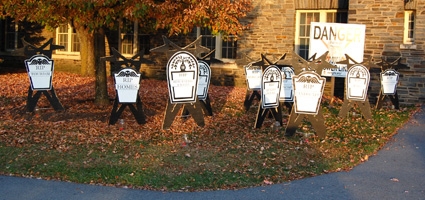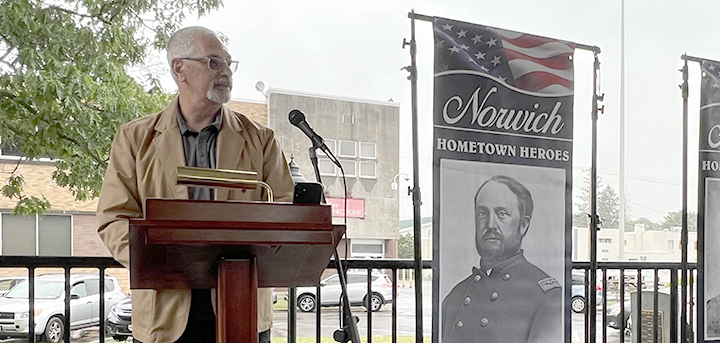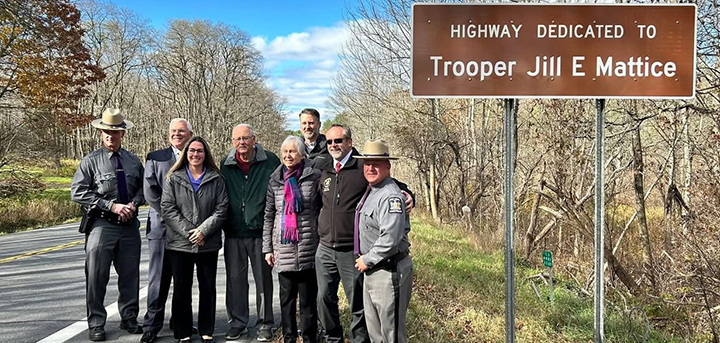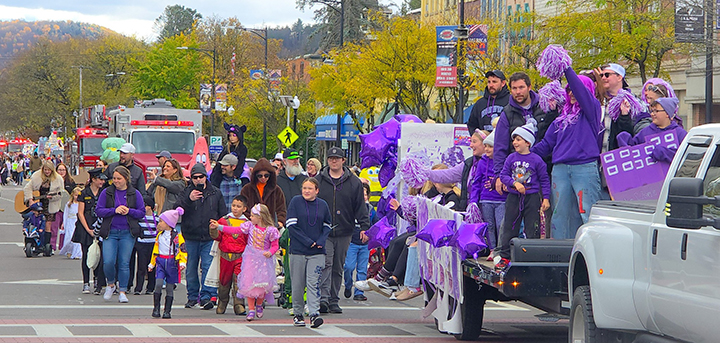Residents speak out against NYRI at PSC hearing
HAMILTON – More than 50 concerned residents of Madison and Chenango counties spoke out Monday night against New York Regional Interconnect, the proposed direct current electric transmission line project that could potentially bisect rural communities in our area.
The New York State Public Service Commission provided the forum, held at the Colgate University Hall of Presidents in Hamilton, as part of NYRI’s Article VII review process. The event marked the beginning of the public hearing portion of that year-long schedule which will determine the fate of the more than $2 billion project, which NYRI claims will decrease congestion and lower utility costs to downstate customers.
The proceedings allowed concerned parties to present testimony before Administrative Law Judges Jeffrey Stockholm and Michelle Phillips, who have been assigned to the case by the PSC.
According to Stockholm, a verbatim transcript of the hearings will be included with the record.
Citing environmental impact, health implications, property devaluation, devastation to local economies and aesthetics, those who chose to speak at the evening session were unanimous in their objection to the project.
“This is a threat to our very way of life,” said Town of Brookfield Supervisor John Sulka, who vocalized his concern that his rural community would not be able to balance its budget and continue to provide services if its tax base was reduced by property devaluation and eminent domain.
These sentiments were echoed by Hamilton Town Councilman David Krum. “This is no value to the Town of Hamilton,” said Krum.











Comments